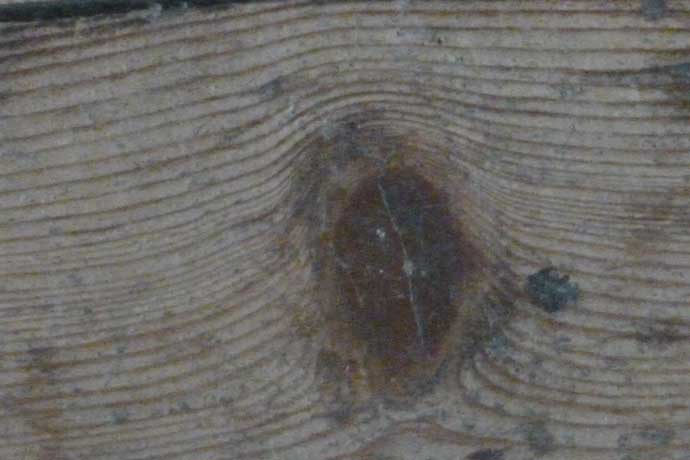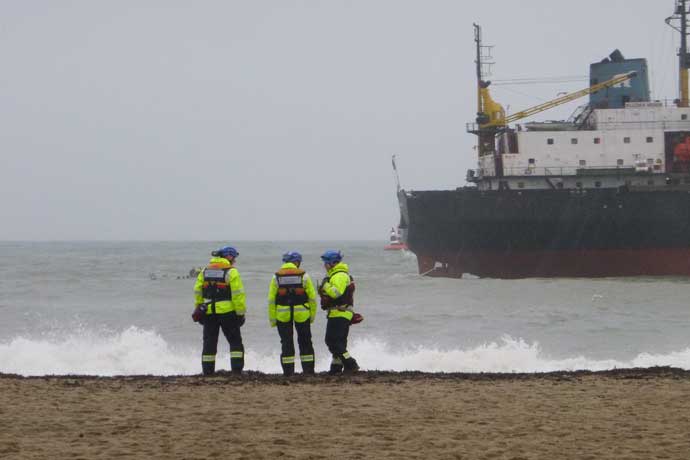So here goes. It’ll all go horribly wrong – except global warming. Politics will depart from the near-universal, near-constant trend towards compromise, procrastination and business as usual for as long as it takes to normalise whatever’s just happened – and for once it will do what the news media are always hoping it will do. Brexit won’t turn out to be a damp squib that leaves us at roughly the same distance as ever from the euro-bureaucracy. Civil war – the People’s War, historians will call it – will break out in England; Scotland and Wales will secede; the Irish will close the border. Budgets will be increased across the board for broadcast-news journalists and the gender pay gap will be closed overnight at the BBC. There will be an internal coup; highly motivated radical news teams will take over management.
EU advisers will be sent in to support the Remain side in London and the home counties, but in response, a formerly imperial (but we don’t talk about that) Asian power will send troops to support the Brexiteers in the North. There’ll be a fragile peace for a while, but then shots will be fired across the M40 just outside Oxford, and an ambitious young reporter, supported by a veteran camera crew, will share footage that seems to show – it was raining that day – armoured vehicles with Chinese markings deploying around a shopping complex in Reading. On 1st April 2019, the Russians will annexe Northern Ireland. The following morning, Cornwall will declare independence and an economic partnership with – but that would be telling. Hint: oil. Theresa May will survive a confidence vote.
Meanwhile, across the water, US politics won’t follow its usual late-term path of kicking the can down the road while the various constituent parts of the US government seek compromise in private while denouncing each other in public. A leading figure in the executive branch will be found to have received payments in his youth from the East German Stasi, while another will confess – in return for immunity – to being a long-term sleeper agent for – but you can guess. Everybody will impeach everybody else. A hacker will leak documents indicating that the NSA, CIA, etc., have known all along that all governments everywhere interfere in all elections everywhere. California will announce that it is adopting its own independent foreign policy. The Senate’s long-running enquiry into something we’ve all forgotten will produce an interim report.
On 1st April 2019, news reports will suggest that the volcano beneath Yellowstone Park has finally erupted; populations will not flee because they think it’s entertainment. Early footage will indeed be dramatic, but the shockwave from the eruption will break open dozens of top-secret government laboratories experimenting with – well, among other things, lethal bio-toxins, zombie-plague viruses, man-eating plants, bio-engineered predatory animals, AI-driven super-soldiers – and even the emergency networks won’t be on the air for very long. A volcanic cloud will cover the entire continental US from April through to – sorry, thru – September, cutting all communications and grounding all air traffic, and when it clears, it will be found that the entire country has reverted to a simple agrarian economy. There won’t be any violence, “frontier law” will make sure of that, but a relatively small Asian nation will send a force of peacekeepers all the same.
Theresa May will survive another confidence vote. In September, armoured and infantry divisions of the newly formed Army of Scotland will invade northern England, fronted by Pipers and supported by Ghurkhas and handing out flowers. Much to their own surprise, they will reach York in two days and Oxford in three. Peace talks will ensue, and all foreign forces will withdraw from the British – the term will be used for clarity – mainland within a week. A new Act of Union will be drawn up and – after brief confusion – be signed by representatives of both sides. The centre of government of the newly united nation will be moved to Scotland. A treaty will be signed with the Welsh. Unexpectedly, the Russians will withdraw from Northern Ireland and negotiations will begin with the various parties to government there. The Edinburgh and Cardiff governments will sign a separate treaty with Cornwall, which will have a monopoly on oil supply to the “British” mainland.
And while all that’s holding our attention, global sea levels will rise by another inch. We won’t notice that. Icebergs the size of countries will break loose and stray into shipping lanes. We’ll be too busy with the political news to register the significance of that. Arctic and Antarctic wildlife populations will dwindle – inside a year; some of us will notice that – and several varieties of tropical lizard will start to produce young that are significantly larger than the norm. A popular scientist will pitch an idea to a TV channel for a show about the return of the dinosaurs. He’ll be turned down and we’ll never see that. In December 2019, in just one month because acceleration really can happen, global sea levels will rise by another inch and a whaling ship will announce that it has caught an ichthyosaur.
But that story will break on Christmas Eve 2019, and we’ll miss it. Later that same evening, a group of shepherds tending sheep on a hill outside a small town in the East will see a flaming comet cross the sky, and then another, and then there’ll be a whole series of impacts that will shake the ground beneath their backs, and then, rather to their surprise, clouds of dust and ash that resemble vast horsemen will spread rapidly across the sky above them, sea levels will rise abruptly to wash at their ankles…
…and in the aftermath, as all that dust and ash forms into a not-quite-walkable crust on the water; as unfamiliar sea creatures crawl up onto the remaining beaches and start walking about on their fins; as reports trickle in that herds of dinosaurs are roaming the burnt forests – all the surviving World Leaders will sign (after all-night talks) a Solemn New Year’s Resolution For 2020 banning climate change.
And promising to do something about it.
And ash will continue to fall from the sky…
…blotting out the sun.

Chop wood, carry water. Do things in the evenings. People watch Netflix anyway, don’t they? All these ads on Freeview are for my eyes only. Maybe next year I’ll become fit and prosperous, develop a whole range of new interests, chop responsibly sourced wood, build a log cabin, carry only the water that I’m prepared to return to the river, carve wooden toys, smelt iron ore, pick up plastic from the beach – do stuff rather than watching imaginary people do stuff. Instead of taking my concerns and worries verbatim from concerned-looking people reading off autocues, I’ll make new friends, talk to people, read more. Actually, that last one deserves more prominence. Read more.
My attention span is shorter than it was. The rest of me is older than it was, but that’s fine because surveys reveal – no, wait. That’s fine because I have found for myself, personally, on my own, without prompting, that getting older has its fun side. Less stress, et cetera, and more – never mind. Surveys – hah! I’ll read more. No, I won’t download an app that reads to me, even if I can pick the voice. When I say I’ll read more, I mean I’ll take books – physical books – down off the shelf (resolution: build bookshelves) one by one and I’ll sit with them in my favourite armchair and I’ll decipher the rows of black squiggles until once again they make sense in the way that they did when I was younger. And I’ll be away.
Remember the (apocryphal?) story of the young girl asked whether she preferred reading to TV? Reading, because the pictures were better. [Might have been radio versus TV, but never mind. Fake news, fake apocryphal stories.]
No, I do NOT need to turn on the TV to find an ad for a store that’s including favourite armchairs in its sale. I have a sofa. It’s old, but that’s not so bad, see above, and anyway, you can’t find forgotten treasures down the backs of new sofas. So – as I used to say – there!



